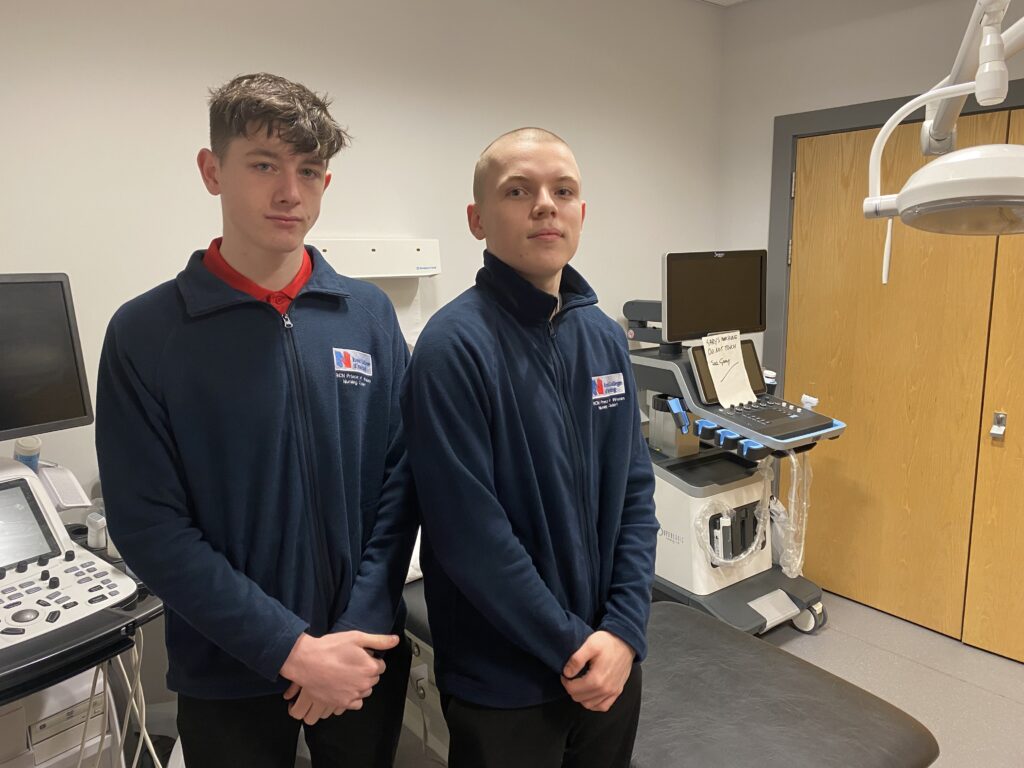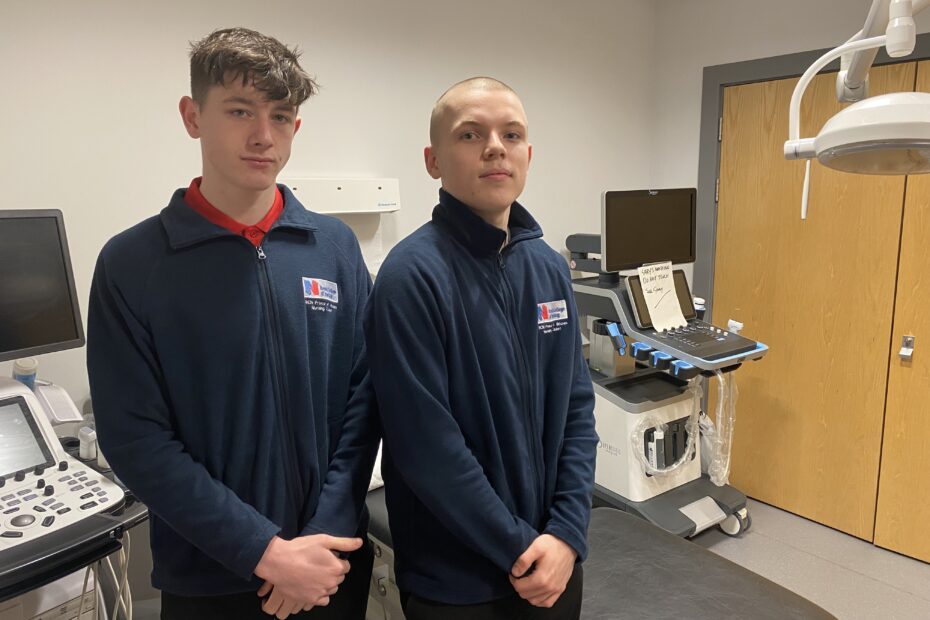
Two young Army Cadets have been given a taste of working life at NHS Greater Glasgow and Clyde (NHSGGC), thanks to a collaboration between Glasgow Clinical Research Facility (GCRF) and the Royal College of Nursing (RCN) Nursing Cadet Scheme.
Sixteen-year-olds Lucas Potter and Joseph Baker attended the Clinical Research Facility and, over the course of three days, they shadowed members of NHSGGC staff who were involved in clinical trials.
They spent time observing research nurses and their patients, learning about research processes such as informed consent and safety in clinical trials. They also visited the clinical trial pharmacy, biorepository and pathology departments, and met staff from NHSGGC Innovation Team, gaining an understanding of the extensive network of staff required in research, and the processes and expertise involved.
Lucas, from Larkhall, and Joseph, from Motherwell, were selected for the experience following a series of interviews at their local Army Cadet companies – and their time with GCRF didn’t disappoint.
“We really enjoyed our time here,” said Lucas, “and I’d like to thank everyone for making us feel so welcome. The highlight for me was definitely the pathology department and the biorepository.”
Joseph agreed that the biorepository was interesting, but struggled to pick out a single highlight.
“For me the whole time here was great – I found it absolutely fascinating, and I’d recommend it to anyone.”
Once they were selected, both boys took part in hands-on training at Gilbertfield Barracks near Cambuslang. They had tuition in safeguarding, basic first aid, dementia care and manual handling, to give them a taste of the skills needed to work in the NHS.
And the experience has been hugely valuable as the boys, who are both in the middle for their exams before going into Sixth Year, look forward to their future.
Joseph, who hopes to study biomedical science at university, said: “The week has given me a great understanding how the skills I have seen can transfer into my everyday life. I found it massively useful as I look ahead to life after school.”
Lucas is hoping to go to college before becoming a firefighter or studying to become a paramedic, and he agreed that the week with NHSGGC was hugely useful.
“Just seeing how everybody works, and how satisfying the right job is, has made me more sure than ever that I should follow my dreams.”
Nicola Thomson, Clinical Research Educator at Glasgow Clinical Research Facility, was one of the NHSGGC staff who acted as guides and mentors for Joseph and Lucas. She said:
“During their time with us, we were keen to break down for Lucas and Joseph the importance of clinical research and all the stages new drugs and medical advances need to go through before they can be implemented with patients.
“For example, even drugs that we take for granted now, like paracetamol and ibuprofen, went through this process. We hope we were able to portray this to Lucas and Joseph and the importance of research to advance the care we give to patients.”
Lynn Prentice, Clinical Research Manager at the GCRF, said:
“The GCRF team felt that supporting the students was both a successful and rewarding initiative to offer opportunities to local communities.
“We hope that by introducing the concept of clinical research and how it underpins advances in health care, we will encourage young people to seek a career in research and spark their imagination so they can enhance the development of healthcare in the future.”
The RCN recognised the importance of introducing research early in the career of cadets and have been working with the UK Clinical Research Facility Network (UKCRFN) to integrate research into the training course. Glasgow Clinical Research Facility was the first research site in the UK to pilot supporting RCN Cadets and initial feedback has been incredibly positive.
Professor Dave Clarke, Associate Director of Education, Royal College of Nursing, said: “We are delighted that Lucas and Joseph had a positive experience with the RCN Nursing Cadet Scheme and that this experience is influencing their future career decisions.
“There are a huge number of rewarding careers available across the health and social care industry and, through our programme, our aim is to show young people the opportunities available to them as well as give them vital skills to take into the next stage of their lives. “
For more information about working with NHSGGC, go to: Staff and Recruitment – NHSGGC
For more information about the RCN Nursing Cadet Scheme please go to Nursing Cadet Scheme | Professional Development | Royal College of Nursing (rcn.org.uk)
